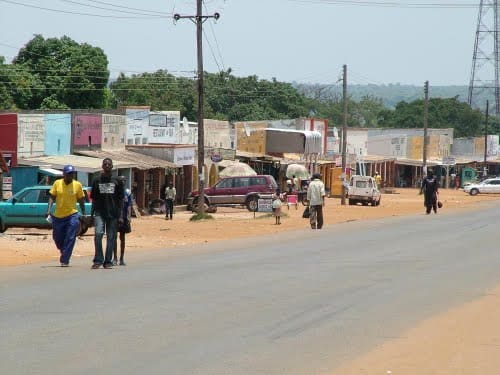A Non-Governmental Organisation, People In Need (PIN), has embarked on a community intervention project to provide renewable power energy.
The project is directed towards 10 beneficiaries in Kalabo district of Western province at a cost above K170, 000.
PIN Programme Coordinator, Zuzana Filipova said the project dubbed “Access to Energy” involves provision of subsidies for the construction of model bio-digesters and installation of biogas units for households or institutional use in the district.
Speaking in an interview, Ms. Filipova said construction of five bio-digesters has already started and that the project will run from February to October this year.
Ms. Filipova said the project would be provided to target beneficiaries in Yuka, Liumba, Ngombe, Sihole and Malasha areas of Kalabo in the province.
She explained that each bio-digester has 15-year duration and would be fed with livestock manure and vegetable waste which undergo decomposition by microorganisms in an oxygen-free environment to produce a renewable energy in form of biogas.
She said community ownership would be strengthened through requested contributions from beneficiaries in form of local materials such as bricks, stones and sand for use in constructing the semi-permanent bio-digesters.
Ms. Filipova stated that the environmentally friendly project has advantages such as improved local development through access to energy, improved livelihoods, environmental protection and decrease in deforestation.
The Programme Coordinator further noted that the “Access to Energy” project would result into improved public health due to decreased respiratory diseases adding that the end product of bio-slurry is excellent organic manure vital for conservation farming.
She observed that the project’s expected results would range from improved awareness, increased market demand and mindset transformation towards use of bio-digesters in Kalabo and the surrounding districts in the region.
She disclosed that PIN was currently engaged in raising awareness as well as educational campaign on the benefits of bio-digesters and practical operation of equipment.
Ms. Filipova has since urged locals to support the “Access to Energy” project saying users would be trained on efficient maintenance of biogas units and have access to after-sales services, spare parts and know-how on plant operation and maintenance.
And Kalabo District Commissioner Fridah Luhila said the project will ensure the clean use of energy that will discourage the locals from engaging in charcoal burning in the locality.
Meanwhile, the International Labour Organization (ILO) has established that incidences of child labour and early marriages in Nkeyema and Kaoma district in Western Province have reduced following cooperating partners’ interventions to curb the vices.
ILO delegation led by Alexio Musindo Country Director for Zambia, Malawi and Mozambique made the discovery after touring several tobacco-growing areas in Nkeyema and Kaoma districts where child labour and early marriages were rife before the multi-stakeholder interventions were made under a project dubbed Achieving Reduction in Child Labour in Support of Education (ARISE).
The Director’s team included ARISE Chief Technical Advisor for Malawi, Tanzania and Zambia Wangui Irimu, Mukatimui Chabala the ARISE National Coordinator for Zambia and Rose Lutele of ARISE Zambia’s Finance Department.
The mission visited tobacco-growing areas such as Munkuye, Shimano and Kamungomba in Nkeyema district to have an on-the-spot check of the successes and challenges of the ARISE project which was first initiated in 2012.
In Nkeyema’s Munkuye area, the team established that there are 22 children being sponsored at school under the ARISE project while 15 youths are being trained in life skills such as carpentry, bricklaying and tailoring.
At Shimano, it was found that 29 youths are being trained in life skills and 32 are being sponsored at school under the same project while Kamungomba area has 22 youths training in life skills with 37 receiving ARISE sponsorship at school.
Mr Musindo was gratified that people’s mindsets are changing as communities in these localities are now seeing the evils of child labour and early marriages.
The ILO delegation established that the challenges in all the areas are basically the same as they all hinge on lack of proper storage facilities for the tools being used for skills training as well as the lack of teachers’ houses and long distances to schools.
Phase 1 of the ARISE project was first initiated in 2012 and it ran up to 2015 while the second phase started in 2015 and it is ongoing with six communities in Kaoma and an additional six in Nkeyema district.
The ARISE project also provides support to parents of vulnerable children to improve their economic livelihoods in areas such as small livestock raring, crops cultivation and group savings as well as sensitization and training of district and community committees coordinating child labour activities.

